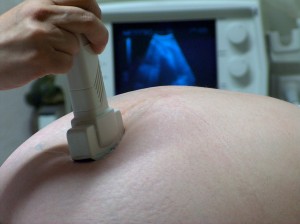 Most of the time, this blog focuses on the effects of cancer and its treatment on fertility. But what happens if you are already pregnant and then diagnosed with cancer? Suddenly you are not only focused on fostering your pregnancy but also saving your life and your growing fetus.
Most of the time, this blog focuses on the effects of cancer and its treatment on fertility. But what happens if you are already pregnant and then diagnosed with cancer? Suddenly you are not only focused on fostering your pregnancy but also saving your life and your growing fetus.
Cancer diagnoses occur in approximately one out of every 1,000 pregnancies and while pregnant women may be diagnosed with any type of cancer, those that occur most during pregnancy are also commonly seen in young adults. These include cervical cancer, Hodgkin’s lymphoma, malignant melanoma, and thyroid cancer. Breast cancer is the most diagnosed cancer during pregnancy and is seen in one out of every 3,000 pregnant women. Though cancer during pregnancy is not uncommon, significant gaps remain in our knowledge of how cancer, and its treatment, can affect the mother, growing fetus, or the fertility of the child in utero.
While pregnant, a woman’s body is constantly changing and these changes can mask cancer symptoms and delay a diagnosis. Possible cancer symptoms such as bloating, headaches, or body aches commonly occur in pregnancy also and may prevent timely diagnosis. Once diagnosed, many treatments may be off-limits to pregnant patients. Patients diagnosed with cancer during pregnancy face complex treatment decisions. During the first trimester of pregnancy, chemotherapeutics are associated with significant risk for fetal malformation. Even after the first three months, cancer therapies may cause problems for the developing fetus. Some types of radiation therapy, such as radioiodine, damage specific tissues but other therapies are thought to be safer. The many types of cancer treatments and variables during pregnancy have prevented the standardization of care for these women.
Little research has examined the long-term effects of cancer treatment on a child exposed to cancer therapies in utero. Significant studies are needed to examine the fertility and long-term health of these offspring. This work would be used to develop guidelines to treat women who are pregnant and facing a cancer diagnosis. In conjunction with research, expert clinicians should be trained to treat pregnant cancer patients. Moreover, cancer during pregnancy presents a unique and complex scenario that must be carefully treated by a multidisciplinary team to to provide a bright future for both mother and child.

